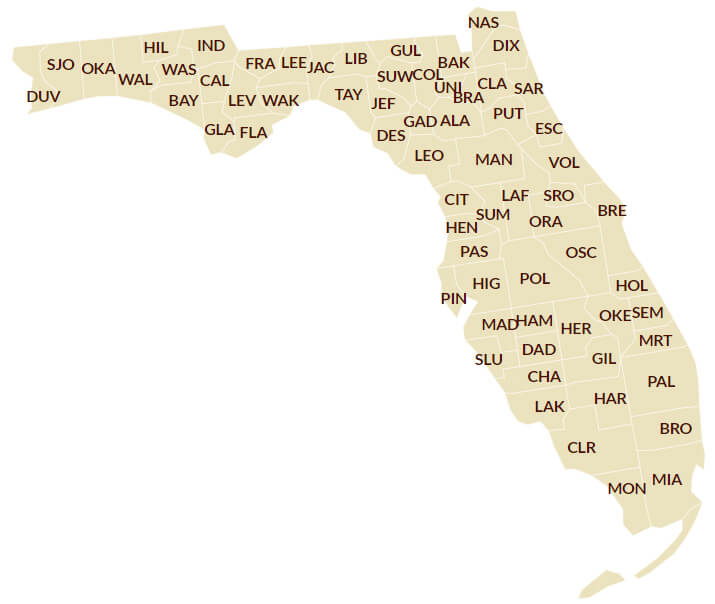Rule 6-4.3 sets out the minimum standards for certification in civil trial law.
(a) Substantial Involvement and Competence.
To become certified as a civil trial lawyer, an applicant must demonstrate continuous substantial involvement and competence in civil trial law in accordance with the following standards.
(1) Minimum Period of Practice.
The applicant must have actually practiced law for at least 5 years of which at least 50 percent has been spent actively participating in civil trial law. At least 3 years of this practice shall be immediately preceding application or, during those 3 years, the applicant may have served as a judge of a court of general civil jurisdiction (circuit court, federal district court, or a court of similar jurisdiction in another state) adjudicating civil trial matters.
(2) Minimum Number of Matters.
The applicant must have handled the trials of a minimum of 15 contested civil cases, each involving substantial legal or factual issues, in courts of general jurisdiction (circuit court, federal district court, or a court of similar jurisdiction in other states).
Of these 15 cases, 5 shall have been jury cases, 5 shall have been conducted by the applicant as lead counsel, and 5 shall have been submitted to the trier of fact on some or all of the issues.
At least 5 of the 15 cases, including 2 jury cases and 2 cases conducted by the applicant as lead counsel, shall have been tried during the 5 years immediately preceding application. Matters deemed to be unacceptable are those that involve: mortgage foreclosure matters tried in less than 1 day, bankruptcy, family law, criminal law, workers’ compensation, summary judgments, mediations, evidentiary hearings, preliminary injunctions, and appellate proceedings. (For purposes of this rule, a day shall be defined as a minimum of 6 hours).
If an applicant is unable to submit 15 trials in courts of general jurisdiction, 3 substitutions may be submitted. For acceptance, such substitutions may include evidentiary hearings or preliminary injunctions lasting at least 1 day which must have involved substantial legal and factual issues, as determined by the civil trial certification committee.
To be considered as a substitute for trial, the substituted matter must have been an adversarial proceeding which involved the taking of testimony and submission of evidence and must be binding on the parties. (For purposes of this rule, “binding” means that the parties are required to honor the court’s decision unless and until the decision is overturned pursuant to law.)
Completion of an advanced trial advocacy seminar, approved by the civil trial certification committee, either through teaching or attendance, that includes as part of its curriculum active participation by the applicant in simulated courtroom proceedings, may also substitute as 1 jury or non-jury trial.
(3) Substantial Involvement and Competence.
The applicant must have substantial involvement in contested civil matters sufficient to demonstrate special competence as a civil trial lawyer within the 3 years immediately preceding application.
Substantial involvement includes investigation, evaluation, pleading, discovery, taking of testimony, presentation of evidence, and argument of jury or nonjury cases. For good cause shown, the civil trial certification committee may waive 2 of the 3 years' substantial involvement for individuals who have served as judges of courts of general jurisdiction (circuit court, federal district court, or a court of similar jurisdiction in other states) adjudicating civil trial matters. In no event may the year immediately preceding application be waived.
(b) Peer Review.
The applicant shall select and submit names and addresses of 6 lawyers, not associates or partners, as references to attest to the applicant's special competence and substantial involvement in civil trial practice, as well as the applicant's character, ethics, and reputation for professionalism. Individuals submitted as references shall be substantially involved in civil trial law and familiar with the applicant's practice.
No less than 1 shall be a judge of a court of general jurisdiction (circuit court or federal district court) in the state of Florida before whom the applicant has appeared as an advocate in the 2 years immediately preceding the application.
In addition, the civil trial certification committee may, at its option, send reference forms to other attorneys and judges.
Peer review received on behalf of the applicant must be sufficient to demonstrate the applicant’s competence, ethics, and professionalism in civil trial law.
(c) Education.
The applicant shall complete at least 50 hours of approved continuing legal education in the field of civil trial law within the 3 years immediately preceding application. Such education shall be approved by The Florida Bar and may include such activity as:
(1) teaching a course in civil trial law;
(2) completion of a course in civil trial law;
(3) participation as a panelist or speaker in a symposium or similar program in civil trial law;
(4) attendance at a lecture series or similar program concerning civil trial law, sponsored by a qualified educational institution or bar group;
(5) authorship of a book or article on civil trial law, published in a professional publication or journal; or
(6) such other educational experience as the civil trial certification committee shall approve.
(d) Examination.
The applicant must pass an examination applied uniformly to all applicants, to demonstrate sufficient knowledge, proficiency, and experience in civil trial law to justify the representation of special competence to the legal profession and the public.










































